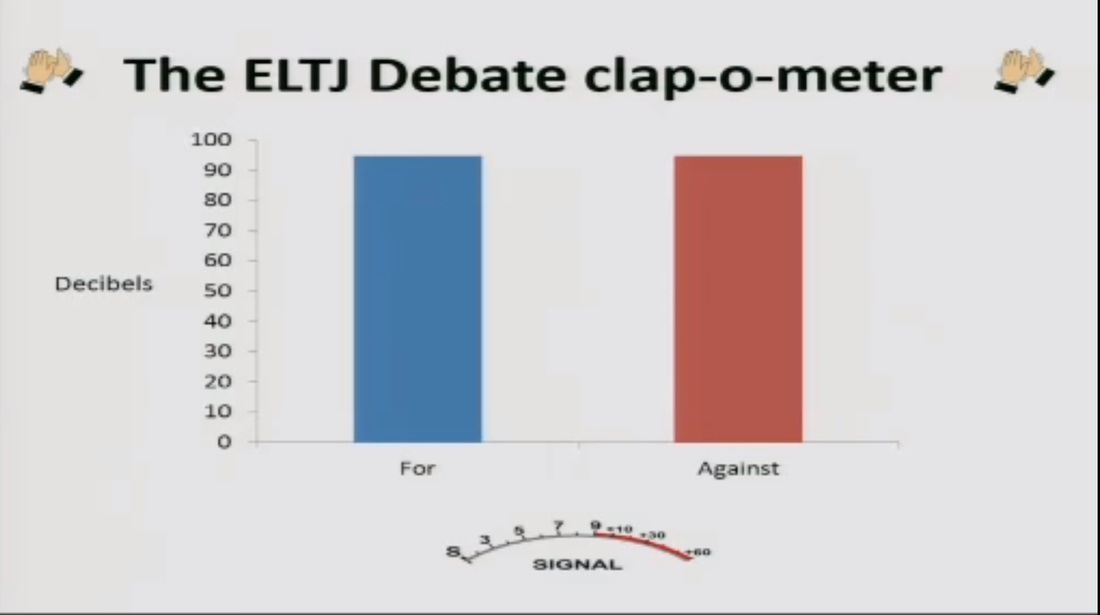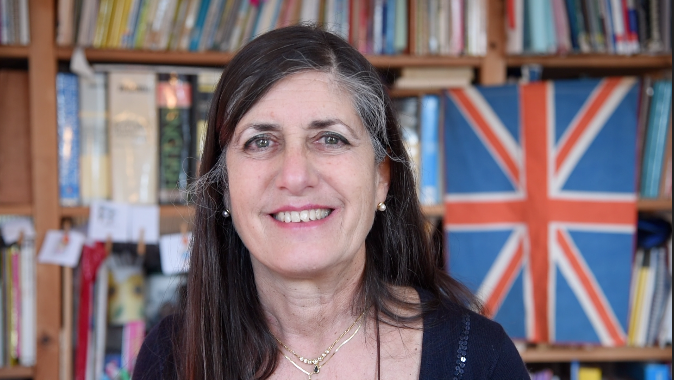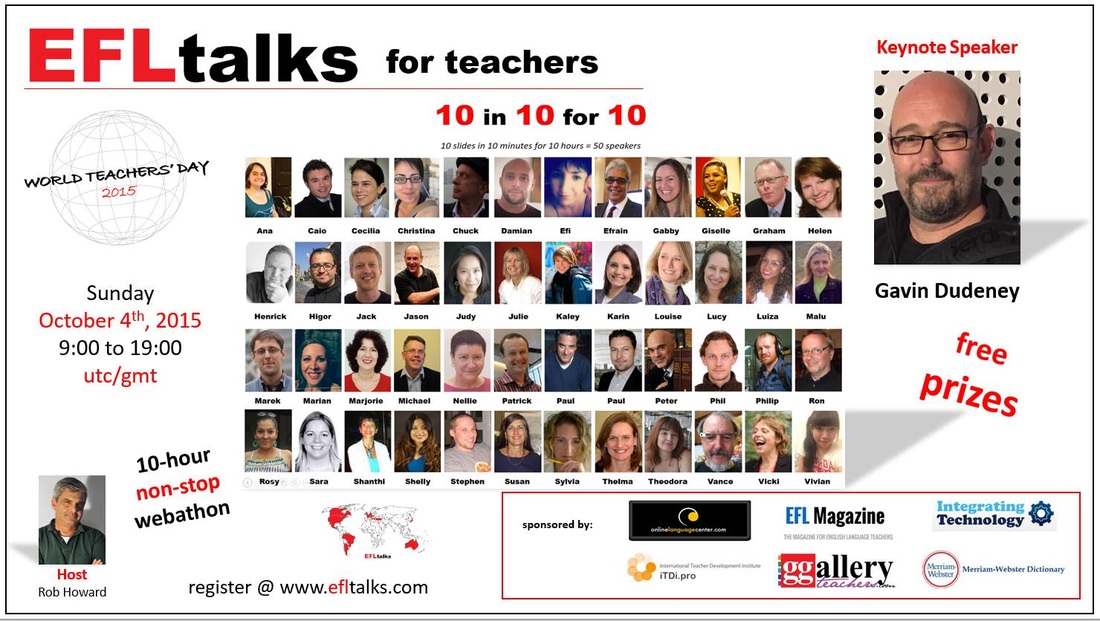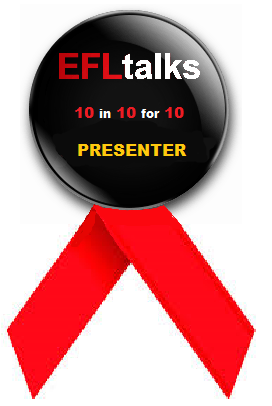|
Every year ELT Journal hosts a debate on different aspects of ELT. On the third day of the conference the editor of ELTJ, Graham Hall, introduced the topic of this year's debate: This house believes that teacher training is a waste of time.
Speakers Peter Grundy & Penny Ur were given 17 minutes each to plead for (Peter) and against (Penny) the motion. Peter's initial amusing anecdotes in which he recounted his first teacher training experiences in 1966, choosing the courses more out of instinct than interest, decided they were very boring, fairly useless and therefore mostly a waste of time. His point of view is that a four-week training course cannot lead to qualified teachers, that the exam failure rate is only 1% yet one in three participants are so disheartened by these courses that they choose not to take up the teaching profession. The Ministry of Education has started a programme called SCHOOL DIRECT in which trainee students are based in schools and that is proving more effective. Peter concluded that teacher training courses we're more likely to turn a plate of salmon into a tin of sardines than vice versa. In Penny's rebuttal to debunk the evidence put by Peter she agreed that sometimes teacher training courses can be a waste of time and of course you can't transform a bad teacher into a good one but that the occasional ineffective training course does not mean all training courses are useless. She said the danger of not training teachers is that novice teachers will teach the way they were taught. Teacher training also saves teachers who may be gifted and very creative from having to work things out themselves. Penny concluded that having checked various blogs of native as well as non-native teachers, most of them felt that it had been worthwhile attending these courses and that these courses had provided them with a satisfactory preparation. Graham then encouraged the audience to ask questions and make comments: - Someone wondered whether the question shouldn't be, "Why don't we update teacher training so it isn’t a waste of time?" Another agreed on upgrading, extending and specializing so as to be effective from day 1. - According to others CELTA was to be strongly defended as conversation classes are often held by pseudo-teachers just because they are native. Instead those who sooner or later take teacher training take a professional attitude towards their job and leap ahead. - Some observed that there are different kinds of teacher training in different countries and that in Mexico, for instance, teachers will have spent hours and hours of time in the classroom by the time they graduate. - How would it be to change roles and become a learner again? was one of the questions. - At a certain point an analogy was made between a driver who is certainly not an expert as soon as he has taken his driver's license but rather he can now make sure he does no harm on the roads and a novice teacher. One would really need about two years to learn the job. - A member of the audience said he had learnt a lot after eight years teaching without training but then found training was an excellent addition and encouraged self-reflection.
Penny then summed up that just because some had learnt more from experience and reflection than training, that didn't invalidate it. She recognised that there was a lot of criticism on content and an enormous need to update: increasing practical work and toning down theory, that one size didn't fit all and that areas, cultures and populations needed to be targetted to prepare the teachers. Training teacher trainers is also important and the question of whether it is better to teach before or after training has still to be solved? Penny concluded that teacher training is not a waste of time. Peter summed up by asking,"How satisfactory is our teacher training?" He felt that at a certain point it is a form of teacher assessment rather than learning assessment. He agreed that if one course is not done well that doesn’t mean that all of them are not done well - but if a lot are not done well people will not continue to attend them. He wondered what could and should be included in these training courses in contrast to how much damage they do - after which he asked the audience to vote for the motion, that is that it's a waste of time. Graham then called the audience to vote by popular acclaim (shouting and clapping) after explaining that his phone was connected via Bluetooth to the Clap-o-meter so they should clap or shout 'AY' if they were for the motion and 'NEI' if they were against it. Despite the Clap-o-meter showing clearly that the decibels were exactly equivalent, my feeling was that those voting against the motion were much louder. Why don't you watch the voting and judge for yourselves...
1 Comment
|
Categories
All
Would you like regular English learning & teaching ideas? Subscribe to my blog so you don't miss a post!
AuthorMy name is Susan Brodar, born in London into a multilingual family and brought up bilingual English / Italian. Archives
December 2018
|






 RSS Feed
RSS Feed





